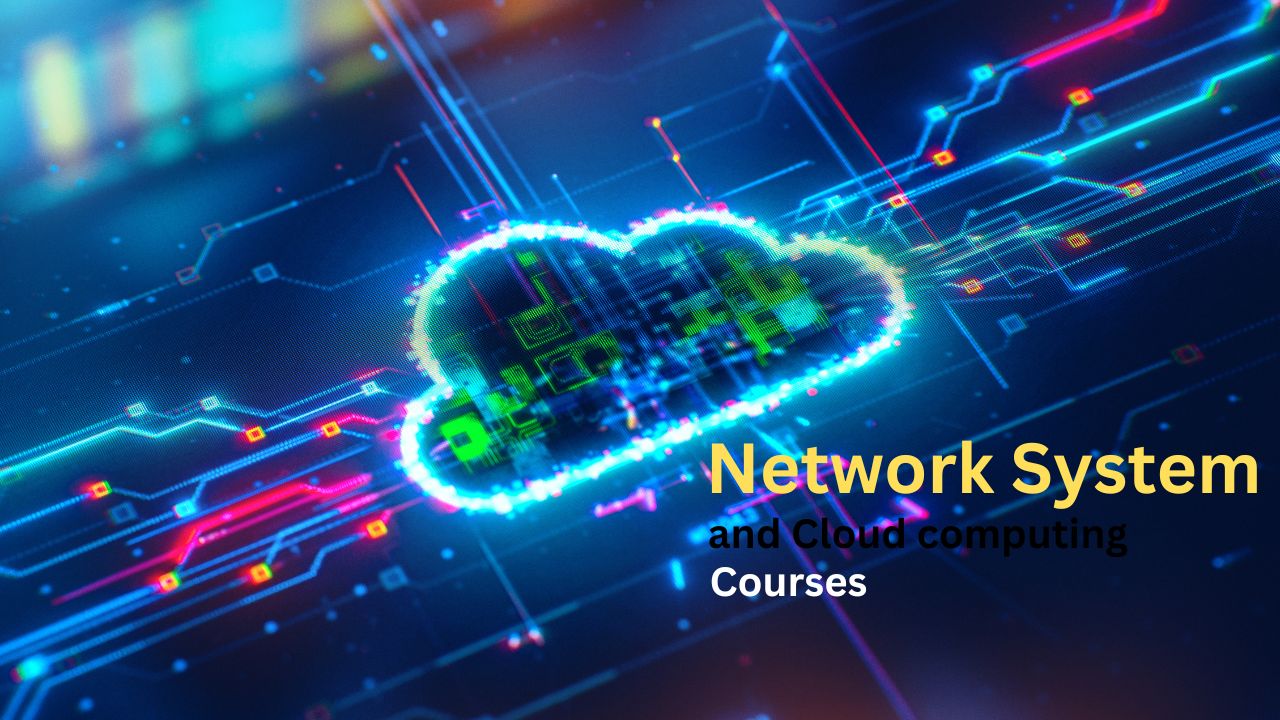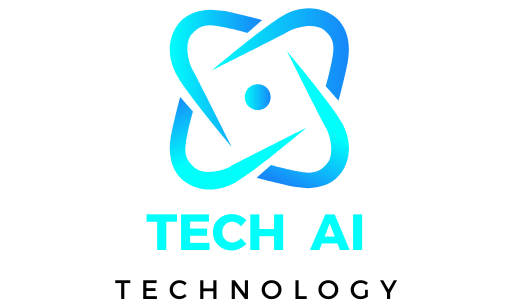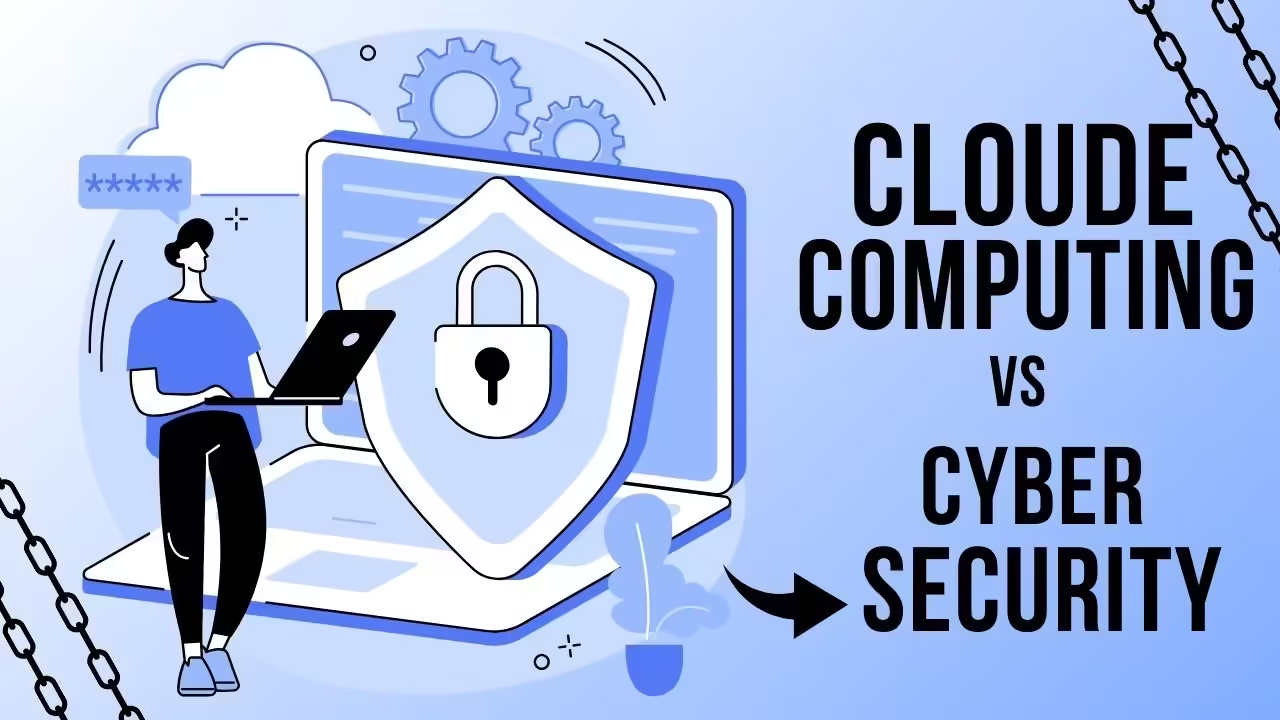In 2025, cloud computing or cybersecurity are at the heart of digital transformation, reshaping how businesses store, manage, and protect their data. As companies shift to hybrid cloud environments, the demand for secure cloud infrastructure, zero trust security, and AI driven threat detection is stronger than ever.
With rising cyber threats, ransomware attacks, and data breaches, businesses must prioritize cloud security solutions, end to end encryption, and multi factor authentication to safeguard sensitive information. Whether you’re a tech professional or a business owner, understanding secure cloud computing, compliance regulations, and risk management is essential to navigating the future of digital security and cloud technology.
Cloud Computing or Cybersecurity: What Matters Most in 2025?
Cloud computing and cybersecurity are vital for businesses and individuals. In 2025, companies rely on hybrid cloud solutions for better storage and efficiency. However, rising cyber threats, ransomware attacks, and data breaches demand stronger security. Zero trust security, encryption, and multi factor authentication are now essential. Protecting cloud applications, enterprise networks, and sensitive data is a top priority.
The Rise of Cloud Computing in 2025
Cloud computing offers scalability, cost savings, and flexibility. Businesses use hybrid and multi cloud models to balance performance and security. Edge computing and AI powered cloud services enhance speed and data processing. However, misconfigurations, insider threats, and unsecured APIs pose risks. Companies need cloud native security, role based access, and continuous monitoring.
Cybersecurity Risks in Cloud Environments
Cyber threats are becoming more advanced. AI driven attacks, phishing scams, and deepfake frauds are rising. Hackers exploit weak security settings and unpatched systems. Businesses must adopt zero trust security, blockchain authentication, and AI based threat detection. Endpoint security, firewalls, and compliance help protect cloud environments.
Best Practices for Cloud Security
Securing cloud platforms requires proactive steps. Companies should use end to end encryption, AI monitoring, and automated patching. Multi factor authentication, secure APIs, and access control are critical. Regular security audits and employee training reduce risks. AI powered threat detection helps businesses stay ahead.
The Future of Cloud Security
Cloud security is evolving. Businesses adopt serverless computing, AI driven protection, and blockchain security. Real time risk assessment and automated response systems improve safety. As threats grow, staying updated with new security trends and best practices is essential.
Understanding Cloud Computing in 2025

Definition and Evolution
Cloud computing in 2025 is more advanced, secure, and efficient. It refers to delivering computing services, storage, databases, networking, software, and AI over the internet. The evolution of cloud computing has led to faster processing, better scalability, and lower costs. Businesses now rely on hybrid and multi cloud strategies to enhance flexibility and security.
Growth of Hybrid and Multi Cloud Models
Hybrid and multi cloud models have grown significantly. Companies use multiple cloud providers to reduce downtime and optimize performance. Hybrid cloud combines private and public cloud benefits, while mult cloud allows businesses to distribute workloads. This approach enhances security, cost efficiency, and regulatory compliance.
Rise of Edge Computing and Serverless Technology
Edge computing processes data closer to the source, reducing latency. In 2025, businesses use edge technology to support real time applications like AI, IoT, and autonomous vehicles. Serverless computing eliminates the need for infrastructure management, making cloud services more cost effective and scalable.
Types of Cloud Computing
- Public Cloud: Third party providers manage infrastructure. It is cost effective but less customizable.
- Private Cloud: Dedicated to one organization. It offers better security but higher costs.
- Hybrid Cloud: Combines public and private clouds for flexibility and control.
- Multi Cloud: Uses multiple providers to enhance redundancy and prevent vendor lock in.
Each model has benefits and risks. Public clouds provide affordability but limited control. Private clouds offer security but require maintenance. Hybrid and multi cloud solutions deliver balance but need strategic management.
Key Technologies Driving Cloud Computing
- AI Driven Cloud Solutions: AI enhances automation, security, and predictive analytics in cloud environments. Businesses use AI for cloud optimization and cost management.
- Machine Learning (ML) for Automation: ML automates data processing, cybersecurity, and cloud infrastructure management.
- Quantum Computing and Cloud Security: Quantum computing improves encryption and cybersecurity, making cloud data safer from cyber threats.
Top Cloud Computing Trends in 2025
- Sustainability in Cloud Infrastructure: Companies invest in green data centers to reduce carbon footprints. Energy efficient cloud computing is a priority.
- Cloud Based AI Applications: AI powered cloud solutions enhance business operations, from chatbots to predictive analytics. AI as a Service (AI aaS) is a growing trend.
The Growing Need for Cybersecurity in 2025

Why Cybersecurity is More Critical Than Ever
Cyber threats are evolving rapidly, making cybersecurity a top priority in 2025. Businesses and individuals face increased risks from AI powered cyberattacks, ransomware, and data breaches. Hackers use sophisticated techniques to exploit vulnerabilities in cloud systems and IoT devices. Cybercrime is expected to cost trillions globally, pushing organizations to adopt stronger security measures.
Rise in AI powered Cyberattacks and Ransomware
Cybercriminals are leveraging AI to automate attacks and bypass traditional security defenses. AI driven malware can adapt and spread quickly, making detection difficult. Ransomware attacks have also surged, targeting critical infrastructure, healthcare, and financial sectors. These attacks encrypt data and demand payments, causing significant financial losses and operational disruptions.
Growth of Deepfake Frauds and Phishing Scams
Deepfake technology is being used to create realistic fake videos and voice recordings. Cybercriminals exploit this to impersonate executives and steal sensitive information. Phishing scams have also become more deceptive, using AI to craft convincing emails and messages. These attacks trick users into revealing login credentials or financial data, leading to identity theft and fraud.
Top Cybersecurity Threats in 2025
Zero day Vulnerabilities
Hackers target unknown software flaws before they are patched. These attacks can compromise networks, leading to large scale data breaches.
Cloud Misconfigurations and Insider Threats
Many businesses migrate to the cloud but fail to configure security settings correctly. Insider threats, including employees misusing access, pose serious risks to data security.
Advanced Persistent Threats (APTs) Targeting Cloud Platforms
Sophisticated hacking groups use long term strategies to infiltrate cloud environments. APTs remain undetected for months, stealing sensitive information and causing major security breaches.
Essential Cybersecurity Strategies
Zero trust Security Model
Organizations must adopt a zero trust approach, verifying every user and device before granting access. Continuous monitoring ensures only authorized access to sensitive data.
End to End Encryption and Identity Protection
Data encryption secures information during transmission and storage. Strong identity protection methods, such as digital certificates and secure authentication, prevent unauthorized access.
Multi Factor Authentication (MFA) and Biometric Security
MFA requires multiple verification steps, reducing the risk of credential theft. Biometric security, including fingerprint and facial recognition, adds an extra layer of protection against unauthorized logins.
Cloud Security: Challenges and Solutions (2025 Guide)
Cloud computing is essential for businesses, but security threats continue to evolve. Organizations must address vulnerabilities to protect sensitive data and comply with global regulations. Here’s a detailed look at common cloud security challenges and best practices for securing cloud environments.
Common Security Issues in Cloud Computing
1. Data Breaches and Loss of Sensitive Information
Unauthorized access and misconfigurations expose sensitive data. Cybercriminals exploit weak security settings, leading to identity theft, financial fraud, and regulatory penalties. Encryption, multi factor authentication (MFA), and real time monitoring help prevent data leaks.
2. Lack of Compliance with Global Security Regulations
Businesses must comply with GDPR, HIPAA, and other regulations. Non compliance results in hefty fines and reputational damage. Automated compliance tools and security audits ensure adherence to data protection laws.
Best Practices for Securing Cloud Environments
1. AI Powered Threat Detection and Response
Artificial intelligence enhances cloud security by detecting anomalies in real time. Machine learning models analyze user behavior to identify potential threats before they escalate. AI driven security solutions improve incident response and minimize downtime.
2. Secure API Management and Endpoint Protection
APIs connect cloud applications but can be vulnerable to attacks. Secure API gateways, encryption protocols, and continuous monitoring prevent unauthorized access. Endpoint security tools protect devices from malware, ransomware, and phishing threats.
3. Role Based Access Control (RBAC) and Privileged Account Security
Restricting user access based on roles minimizes security risks. RBAC ensures that only authorized personnel access critical systems. Privileged Access Management (PAM) solutions prevent insider threats and reduce the risk of credential theft.
AI in Cloud Computing and Cybersecurity: 5 Key Innovations

Artificial intelligence (AI) is transforming cloud security in 2025. It strengthens cybersecurity by detecting threats, predicting risks, and automating security operations. AI driven security solutions help businesses protect data, prevent cyberattacks, and enhance cloud infrastructure.
AI’s Role in Strengthening Cloud Security
Cloud computing security relies on AI to analyze vast amounts of data in real time. It detects suspicious activities, mitigates cyber threats, and safeguards sensitive information. AI powered cloud security tools improve authentication, access control, and compliance.
Automated Threat Detection and Mitigation
AI detects cyber threats faster than traditional security methods. Machine learning algorithms analyze network traffic, identify anomalies, and block attacks automatically. AI driven security solutions prevent unauthorized access, malware infections, and phishing attacks in cloud environments.
Predictive Analytics for Cyber Risk Assessment
AI predicts cyber risks by analyzing patterns and historical attack data. It identifies vulnerabilities in cloud systems before hackers exploit them. AI driven analytics provide security teams with insights to strengthen defenses and reduce risks.
AI Driven Cybersecurity Strategies
AI enhances cybersecurity strategies by automating security operations and improving incident response. It strengthens cloud security frameworks and minimizes human intervention.
AI Enhanced Firewalls and Security Operations
AI powered firewalls detect and block cyber threats in real time. They use deep learning to recognize attack patterns and stop malicious activities. AI automates security protocols, reduces response time, and improves cloud security efficiency.
Self Healing Security Systems
AI enables self healing security systems that identify and fix vulnerabilities automatically. These systems adapt to evolving cyber threats and enhance cloud resilience. AI driven security frameworks improve threat detection, reduce downtime, and protect critical data.
Regulatory and Compliance Requirements in 2025: Key Cybersecurity Standards

Global Cybersecurity Laws and Data Protection Standards
Cybersecurity regulations in 2025 are stricter than ever. Governments worldwide are enforcing new data protection laws to prevent cyber threats and ensure secure digital transactions. Companies must comply with GDPR, CCPA, and evolving data privacy frameworks.
Nations are introducing tougher cybersecurity compliance policies to protect consumer data. Businesses must adapt to these new regulations to avoid hefty fines and legal risks.
GDPR, CCPA, and Emerging Data Privacy Laws
The General Data Protection Regulation (GDPR) and California Consumer Privacy Act (CCPA) still lead global data privacy standards. However, new laws like India’s Digital Personal Data Protection Act (DPDPA) and China’s Personal Information Protection Law (PIPL) are reshaping data security policies.
Organizations must follow strict data handling rules, ensure user consent management, and implement privacy by design principles. Non compliance could lead to penalties and reputational damage.
Compliance Requirements for Cloud Security
Cloud security compliance is a major concern in 2025. With increasing cloud adoption, companies must follow strict data protection regulations. Compliance requires data encryption, access controls, and security monitoring. Businesses need cloud security audits to meet cybersecurity governance policies. Regulatory bodies demand zero trust architecture and AI driven threat detection to ensure cloud infrastructure security.
Cloud Security Certifications and Compliance
Security certifications are essential for regulatory compliance. Organizations must obtain ISO 27001, SOC 2, and NIST 800 53 certifications to prove strong security frameworks. These certifications help businesses build trust, reduce security risks, and ensure compliance with legal requirements. Meeting these standards requires continuous risk assessments, incident response plans, and secure access management.
Staying compliant with cybersecurity regulations in 2025 is critical. Businesses must follow global data privacy laws, adopt cloud security best practices, and maintain security certifications to avoid penalties and protect consumer trust. 🚀
Future of Cloud Computing and Cybersecurity: 7 Key Trends

Cloud computing and cybersecurity are evolving rapidly. Emerging technologies are reshaping how businesses secure their data. Here are seven key trends shaping the future of cloud security in 2025 and beyond.
1. Emerging Technologies and Their Impact
Advanced technologies are redefining cloud security. AI driven security solutions, zero trust architecture, and blockchain integration enhance data protection. Businesses are shifting to decentralized networks for better resilience against cyber threats.
2. Blockchain for Cloud Security and Authentication
Blockchain improves security by offering decentralized data protection. It reduces unauthorized access and prevents data tampering. Blockchain based authentication enhances user verification, making cloud systems more secure against breaches.
3. Quantum Computing’s Influence on Encryption
Quantum computing is a game changer for cybersecurity. Traditional encryption methods may become obsolete as quantum computers can break existing cryptographic protocols. Post quantum cryptography is emerging as a solution to safeguard sensitive data.
4. Predictions for 2030 and Beyond
By 2030, cybersecurity will be fully AI driven. Self learning security systems will detect and neutralize threats in real time. Businesses will adopt quantum safe encryption to future proof their cloud infrastructure.
5. Fully Autonomous Security Systems
AI powered security systems will replace manual threat detection. Machine learning algorithms will analyze network traffic and prevent cyberattacks before they occur. These automated systems will minimize human intervention, ensuring faster response times.
6. Decentralized Cloud Computing Networks
Decentralized cloud networks eliminate single points of failure. Data distribution across multiple nodes enhances security and privacy. This model reduces reliance on centralized data centers, making cyberattacks less effective.
7. AI Driven Cybersecurity Solutions
AI and machine learning will dominate cloud security. Predictive analytics will identify vulnerabilities before hackers exploit them. Automated security audits will ensure compliance with global cybersecurity standards.
FAQs:
Q1. What is the difference between cloud computing and cybersecurity?
Cloud computing provides on demand access to computing resources like servers, storage, and databases. Cybersecurity protects these resources from threats like hacking, data breaches, and malware attacks.
Q2. Why is cybersecurity important in cloud computing?
Cloud environments store sensitive data, making them prime targets for cyber threats, ransomware, and phishing attacks. Strong encryption, multi factor authentication (MFA), and AI based security help protect cloud systems.
Q3. What are the biggest cloud security risks in 2025?
Common risks include data breaches, misconfigured cloud settings, insider threats, and AI driven cyberattacks. Businesses must follow zero trust security policies and real time monitoring to stay protected.
Q4. How does AI improve cloud security?
AI enhances security by automating threat detection, analyzing unusual patterns, and predicting cyberattacks. It helps in real time response and reducing human error in security management.
Q5. What is a Zero Trust Security Model, and why is it essential?
Zero trust security means never automatically trusting any device, user, or system. It enforces strict access controls, multi factor authentication (MFA), and continuous verification to prevent breaches.
Q6. How can businesses secure their cloud data?
Businesses should use end to end encryption, strong access controls, secure APIs, and compliance with data protection laws like GDPR and CCPA. Regular security audits also help prevent vulnerabilities.
Q7. What are the top cloud security trends in 2025?
Key trends include AI powered cybersecurity, blockchain based authentication, quantum encryption, and decentralized cloud security models. These innovations enhance protection against modern threats.
Q8. Is public cloud safe for storing sensitive business data?
Public clouds are secure if businesses implement strong encryption, private VPNs, role based access control (RBAC), and compliance with global security standards. Hybrid cloud models provide extra security.
Q9. How do compliance laws affect cloud security?
Governments enforce GDPR, CCPA, NIST, and ISO 27001 regulations to ensure data security. Cloud providers must follow these laws to protect user data and avoid legal penalties.
Q10. What is the future of cloud computing and cybersecurity?
The future includes fully autonomous security systems, AI driven risk assessments, decentralized cloud networks, and enhanced quantum computing security to combat cyber threats.
Conclusion:
Cloud computing and cybersecurity are essential for businesses and individuals in 2025. As cyber threats grow, securing cloud environments with AI, encryption, and zero trust models is more important than ever. Companies must adopt strong security strategies, follow compliance laws, and stay updated with new technologies.
The future of cloud security will rely on AI driven protection, quantum encryption, and decentralized networks. Staying proactive is the key to safe and efficient cloud computing in the evolving digital landscape. 🚀

